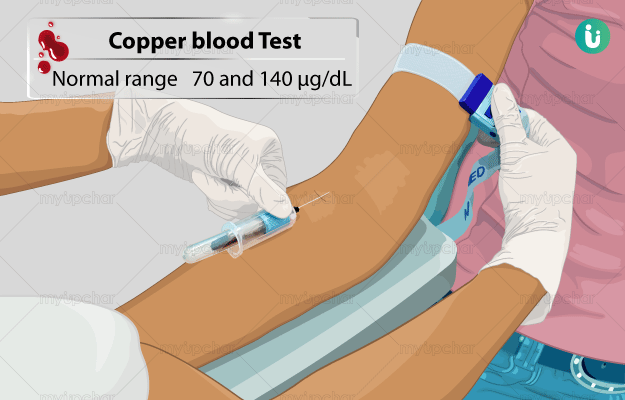What is Copper Blood test?
A copper blood test is used to identify the amount of copper in the blood and to diagnose conditions that lead to copper toxicity or deficiency.
Copper is an essential mineral which is carried in the bloodstream by a protein called ceruloplasmin. It performs various functions in the including the formation of connective tissue, bones and a skin pigment called melanin. Copper works alongside iron in the formation of red blood cells (RBCs) and also plays an important role in iron absorption in the body.
A regular diet contains adequate amounts of copper to meet the needs of the body and maintain a healthy level of copper in the body. However, problems related to copper absorption in the gut or conditions such as malnutrition and thyroid diseases may affect the normal levels of copper in the body, leading to a deficiency or toxicity from this metal.






























